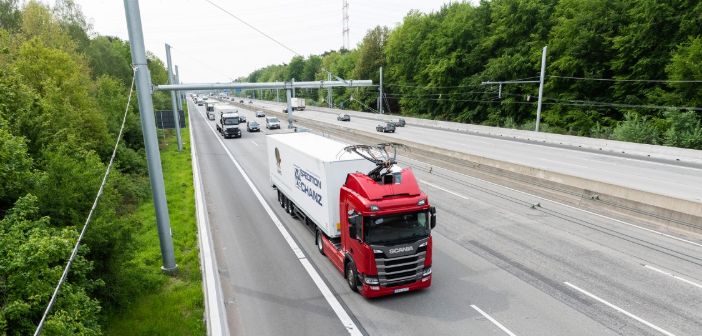A consortium which will look to install overhead charging cables on a motorway, near Scunthorpe, for powering electric lorries has secured funding from the Department for Transport (DfT).
Awarded through Innovate UK, the funding will be used to develop an e-highway on a 20km (12.4 miles) section of the M180 in Lincolnshire.
“We’re delighted this consortium is bringing its extensive experience to solve challenges around decarbonising HGVs by planning to demonstrate this technology at scale on UK roads,” said Alistair Barnes, innovation lead for zero emission vehicles at Innovate UK
Siemens Mobility, Scania, Costain, The Centre for Sustainable Road Freight (Cambridge University and Heriot-Watt University), ARUP, Milne Research, SPL Powerlines, CI Planning, BOX ENERGI and Possible will work together on the UK’s first ever study of the electrification of long-range trucks with dynamic charging.
The consortium has proposed an electric road system, featuring Siemens Mobility e-highway technology. It said this solution would be the fastest, lowest carbon and most cost-effective route to decarbonising the road freight industry.
On such electric road systems, lorries fitted with pantographs would be able to tap into the electricity supply to power electric motors. Siemens, Scania and SPL have trialled similar systems in Germany and Sweden.
According to the consortium, it plans to take the lessons learned from Europe and provide technical, economic, and environmental recommendations for installing a proof-of-concept system with a bigger demonstration fleet.
William Wilson, CEO of Siemens Mobility, said: “Investing in proven technologies like eHighways can help us go further and faster to decarbonise the UK’s transport network, and support jobs and growth to level up the country.
“By building on successful trials from other countries like Germany, our ERS consortium M180 trial will help the UK move a step closer to replacing more polluting trucks with clean, efficient electric HGVs.”
The study aims to see overhead line installed on major roads across the UK by the 2030s.





